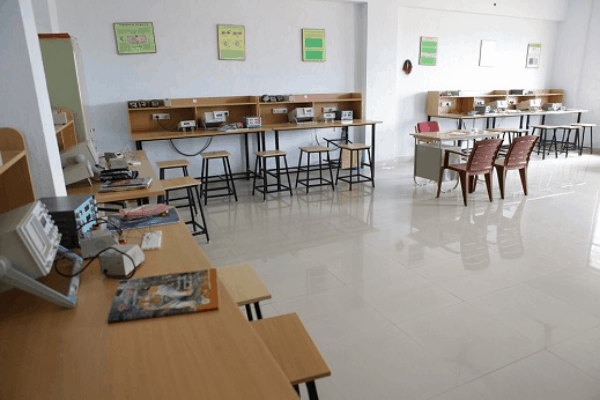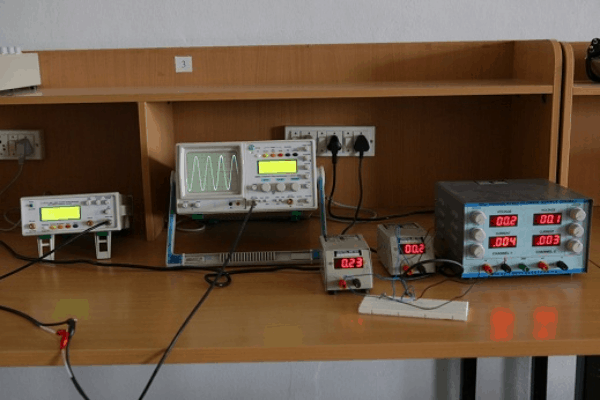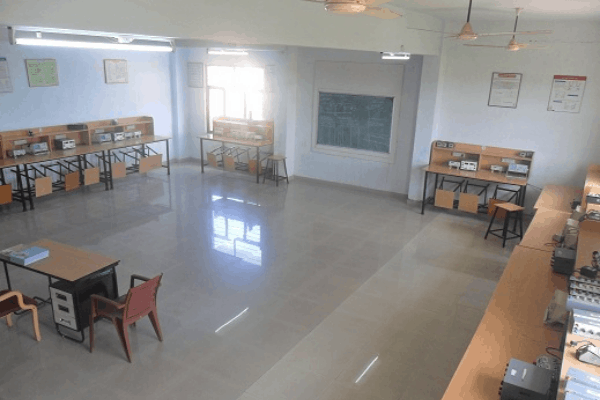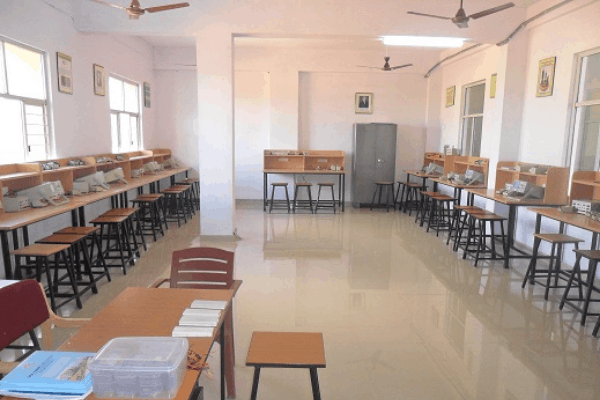An Autonomous Institute-UGC | B.TECH, M.TECH, MBA, Polytechnic
About EEE Department
Electrical & Electronics Engineering
The Department of Electrical and Electronics Engineering (EEE) is a specialized branch of engineering that deals with the study and application of electrical and electronics devices, circuits, systems, and their underlying principles. It encompasses a wide range of topics such as power generation and distribution, control systems, communication systems, electronic devices, and more.
The EEE department is one of the most important departments in engineering as it plays a significant role in the development of various electrical and electronic devices and systems that have revolutionized our way of life. This department provides students with a strong foundation in the fundamentals of electrical and electronics engineering, and enables them to apply this knowledge to real-world problems.

The Department of Electrical and Electronics Engineering offers undergraduate (B.Tech) and postgraduate (M.Tech) programs in various disciplines of electrical and electronics engineering. These programs cover a wide range of subjects such as electrical circuits and machines, power electronics, digital signal processing, control systems, communication engineering, and more. The curriculum of the EEE department is designed to provide students with a balance of theoretical knowledge and practical skills, so they can become well-rounded electrical and electronics engineers.
In addition, the EEE department offers a wide range of career opportunities for graduates. Graduates can work in industries such as power generation and distribution, telecommunications, computer networking, semiconductor manufacturing, aerospace, defense, medical equipment, and more. They can also pursue higher education in the form of Masters and PhD programs in specialized areas such as power systems, renewable energy, control systems, and more.
Overall, the Department of Electrical and Electronics Engineering provides a comprehensive education to the students and prepares them for a successful career in the field of electrical and electronics engineering.
Graduate Courses (B.Tech)
|
S.No |
BRANCH |
COURSE TYPE |
DURATION |
INTAKE |
|---|---|---|---|---|
|
1 |
B.TECH –Electrical & Electronics Engineering |
Full Time |
4 Years |
30 |
Syllabus
Information
To promote Excellence in Technical Education and Scientific Research in Electrical & Electronics Engineering for the benefit of Society
- To impart Excellent Technical Education with State of Art Facilities inculcating Values and lifelong learning attitude
- To develop Core Competence in our students imbibing Professional Ethics and Team Spirit
- To encourage Research benefiting Society through Higher Learning
PROGRAM EDUCATIONAL OBJECTIVES (PEOS)
PEO 1: Establish themselves as successful professionals in their career and higher education in the field of Electronics & Communication Engineering and allied domains through rigorous quality education.
PEO 2: Develop Professionalism, Ethical values, Excellent Leadership qualities, Communication Skills and teamwork in their Professional front and adapt to current trends by engaging in lifelong learning
PEO 3: Apply the acquired knowledge & skills to develop novel technology and products for solving real life problems those are economically feasible and socially relevant
PEO 4: To prepare the graduates for developing administrative acumen, to adapt diversified and multidisciplinary platforms to compete globally.
PROGRAM OUTCOMES (POS)
Engineering Graduates will be able to:
- Engineering knowledge: Apply the knowledge of mathematics, science, engineering fundamentals, and an engineering specialization to the solution of complex engineering problems
- Problem analysis: Identify, formulate, review research literature, and analyze complex engineering problems reaching substantiated conclusions using first principles of mathematics, natural sciences, and engineering sciences
- Design/development of solutions: Design solutions for complex engineering problems and design system components or processes that meet the specified needs with appropriate consideration for the public health and safety, and the cultural, societal, and environmental considerations
- Conduct investigations of complex problems: Use research-based knowledge and research methods including design of experiments, analysis and interpretation of data, and synthesis of the information to provide valid conclusions
- Modern tool usage: Create, select, and apply appropriate techniques, resources, and modern engineering and IT tools including prediction and modeling to complex engineering activities with an understanding of the limitations
- The engineer and society: Apply reasoning informed by the contextual knowledge to assess societal, health, safety, legal and cultural issues and the consequent responsibilities relevant to the professional engineering practice
- Environment and sustainability: Understand the impact of the professional engineering solutions in societal and environmental contexts, and demonstrate the knowledge of, and need for sustainable development
- Ethics: Apply ethical principles and commit to professional ethics and responsibilities and norms of the engineering practice
- Individual and team work: Function effectively as an individual, and as a member or leader in diverse teams, and in multidisciplinary settings
- Communication: Communicate effectively on complex engineering activities with the engineering community and with society at large, such as, being able to comprehend and write effective reports and design documentation, make effective presentations, and give and receive clear instructions
- Project management and finance: Demonstrate knowledge and understanding of the engineering and management principles and apply these to one’s own work, as a member and leader in a team, to manage projects and in multidisciplinary environments
- Life-long learning: Recognize the need for, and have the preparation and ability to engage in independent and life-long learning in the broadest context of technological change
PROGRAM SPECIFIC OUTCOMES(PSO’S)
- Ability to apply concepts of Electronics & Communication Engineering to associated research areas of electronics, communication, signal processing, VLSI, Embedded systems, IoT and allied technologies
- Ability to design, analyze and simulate a variety of Electrical & Electronics Engineering functional elements using hardware and software tools along with analytic skills
ADMISSIONS ENQUIRY FORM










